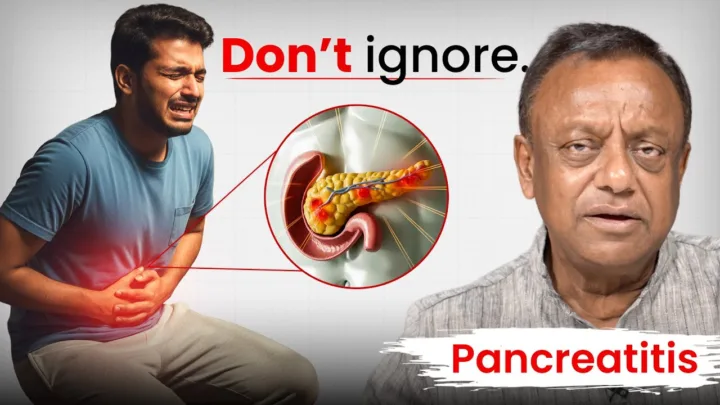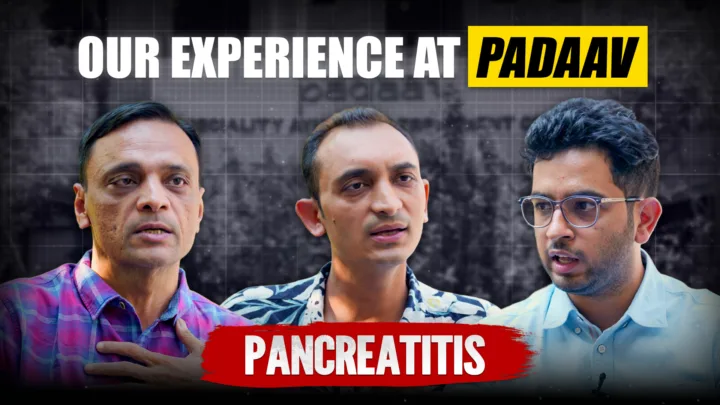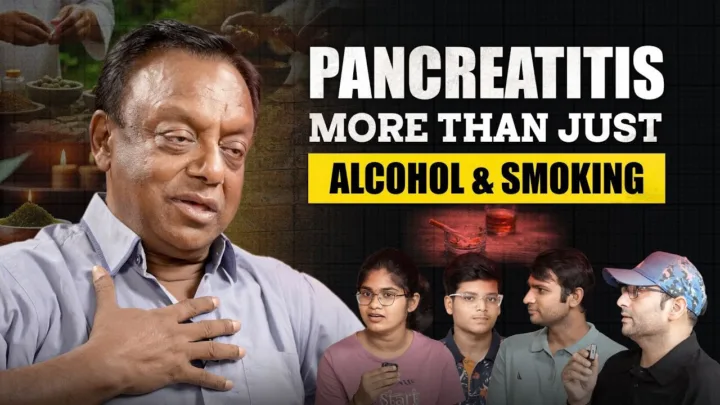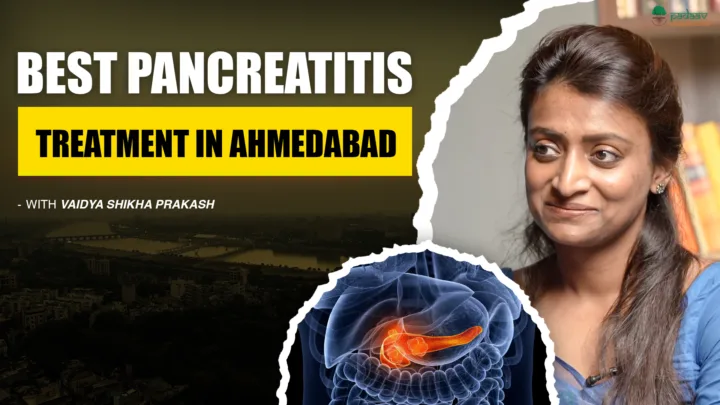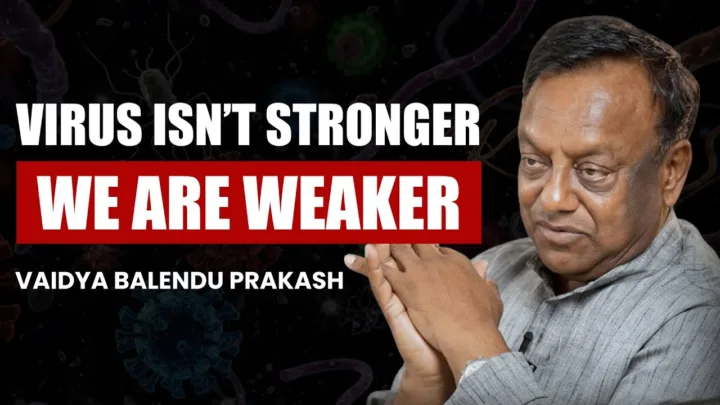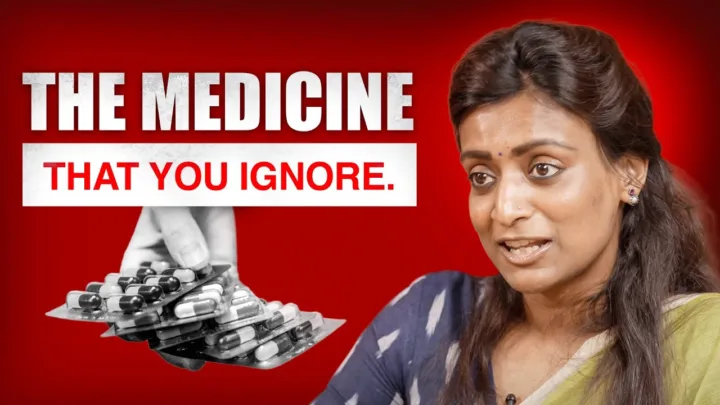A Conversation with Patients at Padaav, Led by Vaidya Balendu Prakash
Pancreatitis, a devastating and often debilitating disease, is typically considered progressive in conventional medicine. At Padaav, Vaidya ShikhaPrakash and her team approach it through a holistic restoration process. This article captures the anxieties, triumphs, and profound questions of young patients who have traveled from across India to seek this Ayurvedic treatment.
The Patient’s Journey: Fear and Fatigue
Rati, a young woman from Ajmer, Rajasthan, recounted a familiar story: her initial severe abdominal pain in 2021 was dismissed as “gas.” After recurring attacks every 6-7 months, her life was defined by pain and hospital stays.
“I was getting attacked every seven to eight months, and my family was very worried.”
For Rati, the fear was compounded by her fragile bones (she had suffered three to four fractures), making the pancreatitis pain even more agonizing. After finding Padaav online, her perspective began to shift on her eighth day of treatment.
- Hope Over Fear: Seeing many other patients, some new and some successfully stable for years, made her feel, “I can get well.”
- The Forbidden Feast: She was thrilled to be eating foods previously banned by doctors, including malai (cream) and nutritious khichdi, noting that while doctors had stopped milk, she was now getting highly concentrated dairy in the form of paneer (fresh cheese) and curd.
The Ayurvedic Principle: Rest for the Body and Mind
Vaidya Prakash emphasized that his treatment is not just medicine; it’s a complete metabolic reset, guided by the principle: “Sarvam Parityaj Shariram Anupalay” (Abandon everything and protect the body).
1. Sleep: The Crucial Medicine
Addressing Rati’s habit of sleeping late (11:00-11:30 PM), Vaidya Prakash drew a sharp contrast between human lifestyle and natural cycles:
- The Problem: Humans ignore the natural cycle, staying up under artificial light, while animals (like his cows and chickens) follow the sunset. Late sleep habits disrupt the body’s natural rhythms.
- The Science: Vaidya Prakash pointed to studies showing that the best restorative sleep for organ health occurs between 8:00 PM and 12:00 AM. This lack of rest is a key cause of pancreatitis in many young patients.
2. Nutrition: The Protein Deficit
Vaidya Prakash diagnosed a common problem in Indian pancreatitis patients: Protein Malnutrition. He noted that many patients, like Ashutosh, eat staples like roti or poha but consume zero protein, even though a young person needs protein equivalent to three to five times their body weight (in grams).
He assures patients they are receiving more nutrition than they ever did at home, explaining that healthy, nourishing food is the key to strengthening tissues, as per Ayurveda (food creates rasa, rasa creates blood, blood creates muscle, etc.).
3. The Deeper Questions: Diet, Life, and the Future
Ashutosh, a 25-year-old jewelry shop owner from Bareilly, shared his own lifestyle mistakes: long gaps between meals (11 AM to 8 PM) and late nights (12:00 AM). His main questions, however, concerned the future.
The Life Partner Question
Ashutosh asked how to explain his condition to a potential life partner, fearing his illness would limit their normal life.
- Vaidya Prakash’s Advice: Be honest. Tell the partner about the disease and the treatment, encouraging them to research both Pancreatitis and Vaidya Balendu Prakash. Reassure them that with discipline, he can live a normal life, but emphasize that life should be lived on their own terms (e.g., take holidays for rest, not just for tourism).
The Scheduling Conflict
Ashutosh wondered if he could simply shift the Padaav routine (e.g., eating at 9 PM instead of 8 PM) by one hour and still stay well.
- The Answer: He must prioritize his body. Instead of extending his day, he should shorten his work day (e.g., close the shop earlier) to allow time for exercise and early sleep. “You must become a trendsetter,” he advised, stressing that trust and goodwill, not long hours, run a business.
4. Amar Medicine: The Nature of the Cure
Lalit, a 24-year-old from Delhi, focused on the fundamental nature of the treatment, particularly the main medication, Amar. Having been dependent on pancreatic enzymes (like Creon 25000) for four years, he was stunned that he felt fine at Padaav without them.
What is the Fundamental Nature of Amar Medicine?
- Not an Enzyme: Amar is not an enzyme replacement. It is a Pancreatitis-Protective mineral complex.
- Ancient Alchemy: The medicine contains traditionally toxic materials like mercury, sulfur, and copper (taamba, paara, gandhak). Vaidya Prakash explained that ancient Rasa Shastra (Indian Alchemy) developed techniques to transform these toxic metals into life-saving mineral complexes, much like sodium and chlorine, which are toxic individually, combine to form life-preserving sodium chloride.
- Holistic Restoration: The cure is the protocol the diet, the rest, and the supportive environment that restores the body’s entire metabolism. Amar is a powerful part of this protocol, significantly reducing emergency attacks and hospitalizations, but it works as part of a complete program.
Vaidya Prakash concluded by saying his work, inspired by his father, aims to replace despair with hope: “Bhaymati Iti Bheshaja” the true work of the healer is to remove fear.

